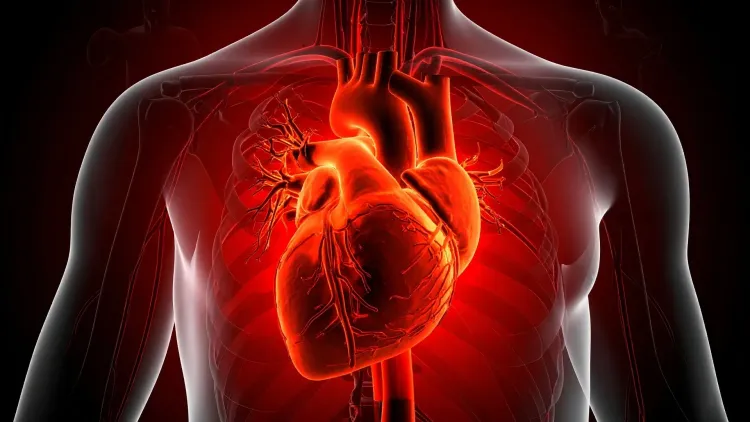Is This New AI Tool More Accurate Than Cardiologists in Detecting Hidden Heart Disease?

Synopsis
Key Takeaways
- EchoNext is an AI tool that leverages ECG data to detect hidden heart diseases.
- It has shown higher accuracy than cardiologists in identifying structural heart issues.
- The tool can potentially revolutionize heart disease screening on a global scale.
- Over 1.2 million ECG-echocardiogram pairs were used to train the AI model.
- By implementing this technology, millions of lives could be saved through timely diagnosis and treatment.
New Delhi, July 17 (NationPress) A cutting-edge artificial intelligence (AI) tool utilizing data from affordable electrocardiograms (ECGs) may surpass cardiologists in accurately diagnosing hidden heart disease, according to researchers in the US.
Structural heart disease, which encompasses valve disease, congenital heart issues, and various conditions that hinder heart function, impacts millions globally. Unfortunately, many cases remain undetected due to the absence of routine, cost-effective screening tests.
To bridge this gap, a team from Columbia University has created EchoNext, an AI-driven screening tool that leverages standard ECG data to identify structural heart diseases.
EchoNext pinpoints patients who require an ultrasound (echocardiogram)—a non-invasive method for diagnosing structural heart conditions. According to a study published in the journal Nature, this tool demonstrated higher accuracy than cardiologists.
"We have colonoscopies and mammograms, but we lack similar tests for most heart diseases," stated Pierre Elias, Assistant Professor of Medicine and Biomedical Informatics at Columbia University Vagelos College of Physicians and Surgeons.
EchoNext was crafted to interpret standard ECG data and determine when a cardiac ultrasound is necessary.
"Essentially, EchoNext employs the less expensive test to identify who needs the pricier ultrasound," Elias explained.
"It uncovers diseases that cardiologists cannot detect using just an ECG. We believe that integrating ECG with AI could establish an entirely new screening framework," he further elaborated.
This deep learning model was trained on over 1.2 million ECG-echocardiogram pairs from approximately 230,000 patients.
A validation study conducted across four hospital systems, including several NewYork-Presbyterian campuses in the US, revealed that the screening tool showed remarkable accuracy in detecting structural heart issues like heart failure due to cardiomyopathy, valve disease, pulmonary hypertension, and severe heart thickening.
In a comparison involving 13 cardiologists examining 3,200 ECGs, EchoNext accurately identified 77 percent of structural heart problems, while cardiologists achieved an accuracy of only 64 percent.
"With our technology, we could transform the estimated 400 million ECGs expected to be performed globally this year into 400 million opportunities to screen for structural heart disease and potentially provide life-saving treatments at critical times," Elias concluded.









